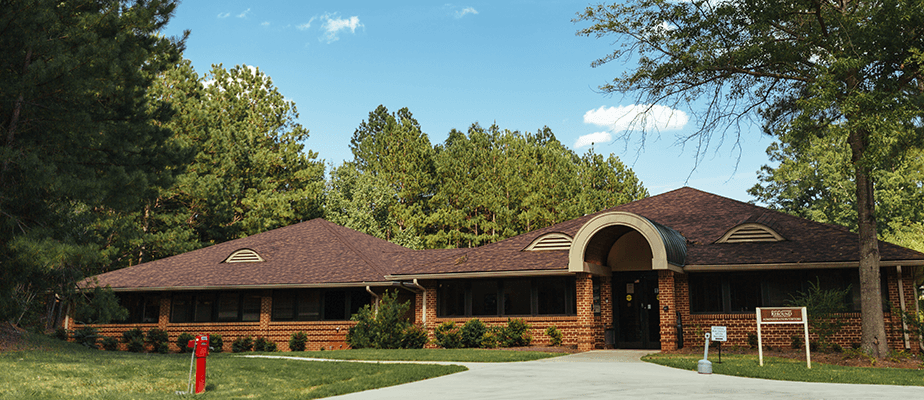Begin your recovery journey today by contacting the staff at Rebound. Our individualized services can help you achieve success.
About Drug Abuse
Learn More About Drug Addiction & Treatment at Rebound Behavioral Health
Substance abuse refers to a pattern of harmful use of a substance, such as alcohol, opiates, prescription medications, heroin, or methamphetamine, for mood- or mind-altering purposes. Over a period of time, substance abuse can lead to changes in the structure and function of the brain, which can further lead to the development of physical dependence and addiction. People who are addicted to drugs have become physically and mentally dependent on the substance, ultimately causing them to continue using the substance despite the adverse consequences that that use has caused on their health and wellbeing.
As the leading substance abuse treatment center in South Carolina, we know that the prospect of recovering from substance abuse may feel hopeless, but with the right treatment and support, change is possible. The friendly staff at our drug addiction treatment center is dedicated to providing our clients with a compassionate and secure environment where they can feel safe working through their concerns. If you are struggling with substance abuse or addiction, you do not have to suffer alone. Our drug treatment center is here to help.
How to Help a Loved One
Helping a Loved One Get Treatment for Drug Addiction
Having a loved one who is struggling with substance abuse or drug addiction can cause you to experience feelings of anger and concern. While you are worried about your loved one’s safety and wellbeing, it may be hard to understand why he or she would put him or herself in such a situation. Watching the person you love slowly slip away can be heartbreaking and leave you wondering what you can do to help them. Here are a few tips that can assist you in talking to your loved about getting treatment:
Educate yourself: Take the time to educate yourself about addiction, the symptoms that may be present, and the effects your loved one may begin to experience. This will also help you understand more about the disease of addiction and make you realize that the behaviors are not something that your loved one can easily overcome. Also, by educating yourself, you will be knowledgeable when the time comes for you to talk to your loved one about your concerns and about the prospect of seeking rehab.
Empathize: While it may be hard to empathize with someone who is causing themselves harm, take the time to think about the circumstances that may have lead to the development of your loved one’s drug addiction. He or she may be struggling with a number of different circumstances that you may not know about, so do all that you can to demonstrate a sense of empathy. When you talk to him or her, make sure that you truly listen and do not minimize any of his or her feelings.
Offer support: If your loved one agrees that he or she needs to seek rehab at a treatment center, be there to support him or her throughout the entire process. Help with any logistics that you can that may make the transition into treatment easier, such as offering to make appointments and going with him or her to those appointments. While your loved one is in treatment, make sure to consistently check in to see how he or she is doing. Your ongoing encouragement can make a world of difference in his or her recovery journey.
Seek support: In addition to helping your loved one, it is also important to remember that you have needs as well. Look into support groups in your area such as Nar-Anon or Al-Anon that can help offer you support and allow you to process your own emotions.
Why Consider Treatment
Why Consider Inpatient Treatment for Drug Addiction at Rebound Behavioral Health
Drug and alcohol addiction is a serious illness that can cause many negative consequences in your life. After awhile, you may begin to experience problems at home, at work, in school, and within your closest relationships. You may feel depressed, anxious, and alone. As your drug use increases, you may become dependent on the drugs, causing your addiction to seem as though it has taken over your entire life. Soon, all you care about is obtaining and using your drug of choice. As substance abuse affects almost every organ in your body, you may be facing serious health consequences such as brain damage, collapsed veins, infections of blood vessels, liver damage or failure, and a weakened immune system. In some cases, substance abuse can even lead to death as the result of an overdose.
Treatment centers that specialize in substance abuse treatment are a very effective way to help individuals who are addicted to drugs or alcohol achieve sobriety and learn the tools necessary for sustaining recovery. Substance abuse rehab centers provide you with an opportunity to learn the skills you need to allow you to be successful in your sobriety. Through a variety of different treatment methods, you will learn about appropriate developing coping skills, managing stress, and preventing relapse. Additionally, certain therapeutic aspects of rehab centers can guide individuals in working with family members and other loved ones to mend relationships that may have been fractured by the substance abuse.
Our Rehab Philosophy
Rebound Behavioral Health’s Rehab Philosophy
As the leading drug rehab center in South Carolina, we use a holistic approach as we integrate wellness in the body as a whole. Our approach to addiction treatment is to provide you with as many skills as possible so that you can cope with daily stressors in a more productive way. Our interdisciplinary treatment team will work with you to identify your treatment goals and help you successfully achieve them. Our accepting and compassionate environment offers the perfect setting for you to begin your healing process.
Treatment Methods
Types of Drug Addiction Treatment Offered at Rebound Behavioral Health
The rehab for substance abuse at our treatment center combines medication management with psychotherapy approaches in order to offer clients a truly comprehensive experience. Our treatment experts will collaborate with each client to identify specific concerns and develop a plan that will help him or her reach his or her personal recovery goals. Upon arrival at our treatment center, each individual will undergo a series of evaluations to determine where his or her needs lie.
Depending on the type and severity of addiction that an individual is suffering from, he or she may benefit from beginning his or her recovery journey in our detoxification services. Clients who are battling an addiction to alcohol, opiates, or benzodiazepines may engage in detox services as a means of having these substances of abuse safely removed from their systems prior to participating in the therapeutic aspects of programming. Learn more about our detoxification program.
As one of the leading drug rehab centers in South Carolina, we use individual therapy to address any personal issues that may be related to a client’s substance abuse behaviors and to gain an understanding of the underlying causes that may have impacted the development of his or her addiction. Each client meets daily with members of his or her treatment team to review the progress that he or she is making in rehab.
Group therapy is a major part of the treatment process at Rebound. There are many groups held daily that cover a wide range of topics. Some of the different groups that are offered include process groups, psychoeducational groups, and skills-based groups. Our group rehab sessions are run by social workers and are designed to help individuals work through issues while getting input from staff and peers.
Family therapy is an essential part of the rehab experience at our drug addiction treatment center, as substance abuse affects the whole family. Family sessions are used to address any family dynamics that may have contributed to an individual’s substance abuse, as well as allowing his or her loved ones the time to process their own emotions. On Sundays, family education sessions will be held to teach family members and loved ones more about addiction and recovery. We will help connect family members to substance abuse support groups such as Al-Anon and Nar-Anon so they are able to cope with their own struggles.
Rebound also offers additional methods outside of traditional therapy models to help individuals as they work towards recovering from their addictions. These include the following:
- Journaling
- Music therapy
- Recreational therapy
- Relaxation therapy
- Massage
- Pet therapy
- A.A. and N.A.
Discharge & Continuing Care
Maintaining your Recovery from Drug Addiction
Once it has been established that you no longer need inpatient care, an individualized discharge plan will be created by you and your treatment team. Depending on your needs, you may join our outpatient treatment. If you and your treatment team believe that you have made enough progress to return home in, you will be given a list of referrals for traditional outpatient therapies available in your community, as well as an A.A. or N.A. group.


















